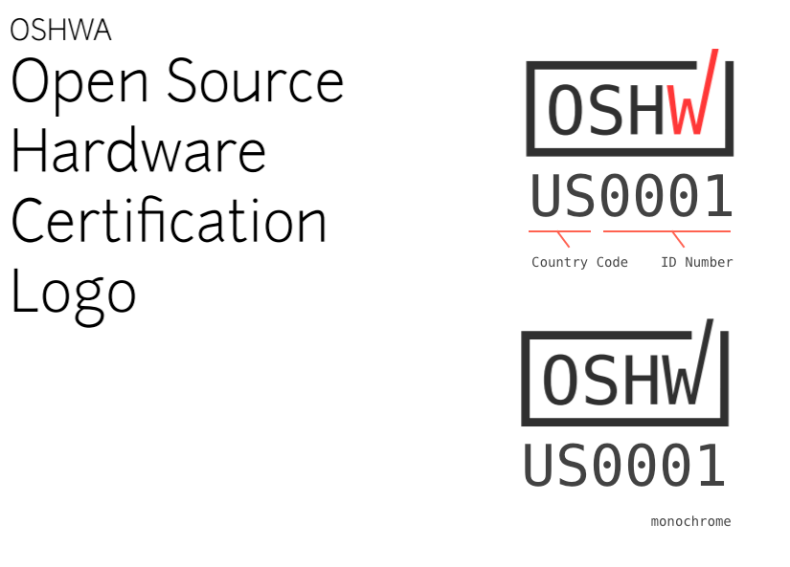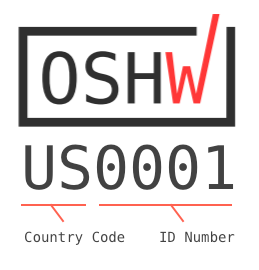This post originally appeared on the OSHWA blog.
We at OSHWA are excited to announce that the OSHWA Certification process has an officially registered trademark. This registration will make it easier for OSHWA to prevent people from using the OSHWA Open Source Hardware Certification logo if they have not actually gone through the certification process. We hope this will give the community more confidence when they see the OSHWA certification logo on hardware out in the world.
While there are many good faith ways to describe something as “open source hardware,” OSHWA considers certified projects to have met the gold standard of open source hardware by formally committing to comply with all of the elements of the community definition.
Are Trademarks Compatible with Open Source Hardware?
Trademarks are not in conflict with open source hardware. Trademarks are designed to indicate the origins of goods, not to control their reproduction. Knowing who produced something is especially important with hardware, because who actually manufactured hardware can be just as important to its reliability as who designed it.
Trademarks also do not prevent someone else from building on or using hardware that is protected by the mark. Companies like Lulzbot, Evil Mad Scientist, Adafruit, and Sparkfun all make open source hardware that anyone can copy, improve, or build upon. What people cannot do is pretend that their version of the hardware came from one of those companies by selling their version under the brand name of the original creator. That makes sense, because the original creator is no longer responsible for the new versions.
When creators have invited the world to make use of their open hardware, trademarks are how we know which pieces of hardware still come from the original designer. OSHWA believe that strong brand identities are compatible with a vibrant open source hardware ecosystem.
What OSHWA’s Trademark Means
The OSHWA Open Source Hardware Certification process is designed to make it easy for end users to quickly tell if their hardware meets the community definition of Open Source Hardware. When you see the OSHWA certification logo, you know what “open source hardware” really means.

The trademark will allow us to control how people use the certification logo out in the world. In concrete terms, it means that someone who fraudulently uses the OSHWA certification logo on hardware that does not meet the community definition is infringing on the OSHWA trademark. That means that OSHWA could bring a trademark infringement action against that person. This will allow OSHWA to protect the integrity of the certification mark.
What OSHWA’s Trademark Doesn’t Mean
As we noted in a post at the outset of the certification development process, OSHWA has no interest in controlling, nor ability to control, who gets to use the term “open source hardware.” Similarly, OSHWA does not have, nor desire, any control over who gets to use the Gear Logo and when they get to use it. Open Source Hardware is a concept that was developed by the community and continues to evolve as the community evolves.
Instead, OSHWA’s trademark will allow OSHWA to control the OSHWA-specific certification process. If the community definition of open source hardware is important to you, the OSHWA certification logo will be an easy way to know that the hardware you are holding matches that definition.
What is Next?
We are getting excited to launch version 2.0 of the certification process at the Summit this September. One of the big goals of 2.0 is to make it even easier to understand how licensing works with open source hardware, and make it easy to explore hardware that has already been certified. If you are at the Summit you will be able to see that launch in person. If you can’t make it, keep an eye on this space for updates.
Also, a huge thank you to the students of the Juelsgaard Intellectual Property and Innovation Clinic at Stanford University Law School for guiding OSHWA through the registration process.
Thoughts? Questions? You can always find OSHWA on Twitter, Facebook, and in the forums.
